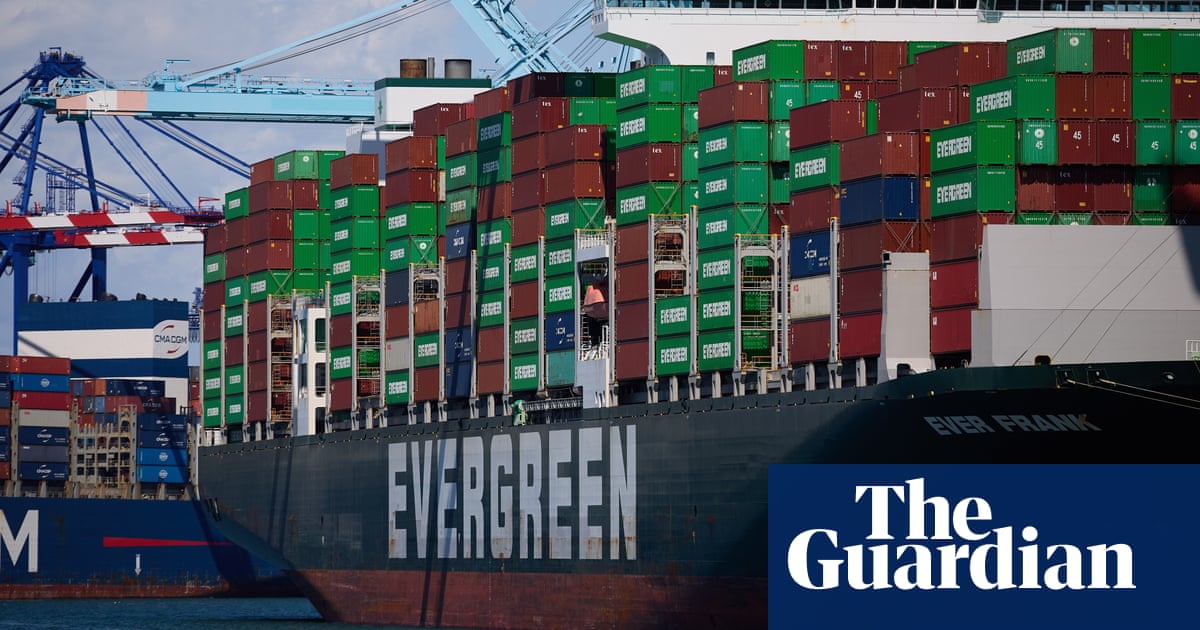Donald Trump’s increasingly erratic trade war has triggered a slump in shipments to the US’s most important ports, amid the growing risk of a recession in the world’s largest economy.
In the latest sign of the US president’s tariff policies rattling the economy, figures show the number of vessels scheduled to arrive at the Port of Los Angeles next week isdown by almost a thirdon the same period a year earlier.
According to the data compiled from ocean carrier manifest records by Port Optimizer, the number of arrivals this week is on track to be down by about 11% on the same week last year. Separate figures reported by the Financial Times from Vizion, a data provider, show container bookings from China to the US fell 45% by mid-April compared with a year earlier.
Economists have warned that Trump’s trade battles will lead to a significant slowdown in global trade and come with a cost for US consumers by pushing up prices and raising the chances of a recession. Washington has imposed a 145% tariff on Chinese imports and a blanket 10% border tax on all other countries, barring some exemptions.
Over the weekend, the US treasury secretary, Scott Bessent, suggested there was apotential “path” to a deal with Chinaon tariffs after speaking with his Chinese counterparts on the sidelines of the International Monetary Fund and World Bank spring meetings.
Analysis by the US private equity group Apollo Global Management showed new business orders have fallen sharply since Trump’s “liberation day”announcementon 2 April.
Torsten Sløk, the asset manager’s chief economist, said: “For companies, new orders are falling, capex [investment] plans are declining, inventories were rising before tariffs took effect, and firms are revising down earnings expectations.
“For households, consumer confidence is at record-low levels, consumers were front loading purchases before tariffs began, and tourism is slowing, in particular international travel.”
Growing numbers of US company chief executives have voiced alarm at the impact from Trump’s tariff policies. The bosses of Walmart and Target, two of the country’s largest retailers, have warned the president that his plans could disrupt supply chains, raise prices and lead to empty shelves.
Analysts said the latest shipping figures, which are updated on a daily basis, indicated the fallout was escalating. However, some of the decline will also be down to a lull in activity after US companies rushed to import goods before Trump’s inauguration in anticipation of his tariff policies.
The US trade deficit widened to arecord high in Januaryas companies front-loaded imports before tariffs were imposed.
Kathleen Brooks, the research director at the trading platform XTB, said: “Already, port authorities in the US and logistics firms are expecting Chinese shipments to fall sharply.
“Demand for goods from China has plummeted since mid-April, suggesting that US businesses have been quick to adjust to the tariffs.”
Sign up toBusiness Today
Get set for the working day – we'll point you to all the business news and analysis you need every morning
after newsletter promotion
Brooks said the fall in container bookings would have a “major impact” on Chinese businesses. However, the vice head of China’s state planner, Zhao Chenxin, said on Monday he was “fully confident” that the world’s second-largest economy would achieve its economic growth target of about 5% for 2025.
The San Pedro Bay ports of LA and Long Beach handle almost a third of all containerised seaborne trade in the US, and act as the main gateway for goods from China. As the busiest port in the western hemisphere, cars, computers and smartphones are the top imports to the port of LA.
Highlighting that it typically takes between 20 and 40 days for a sea container to travel from China to the US, Sløk said there would be a knock-on impact on demand for US trucking from the middle of next month, which could lead to empty shelves and layoffs in the distribution and retail industries.
This could lead to a recession by the summer, he added.
Paul Krugman, the US Nobel-winning economist, said the collapse in trade was “reminiscent of what happened during and after the Covid pandemic” amid growing uncertainty for companies over the president’s policies.
“But this time a virus won’t be responsible. It will all be about Donald Trump,” he wrote on Substack. “This time there won’t be a vaccine coming to our rescue. We’re stuck with this chaos agent for three years and three months.”
